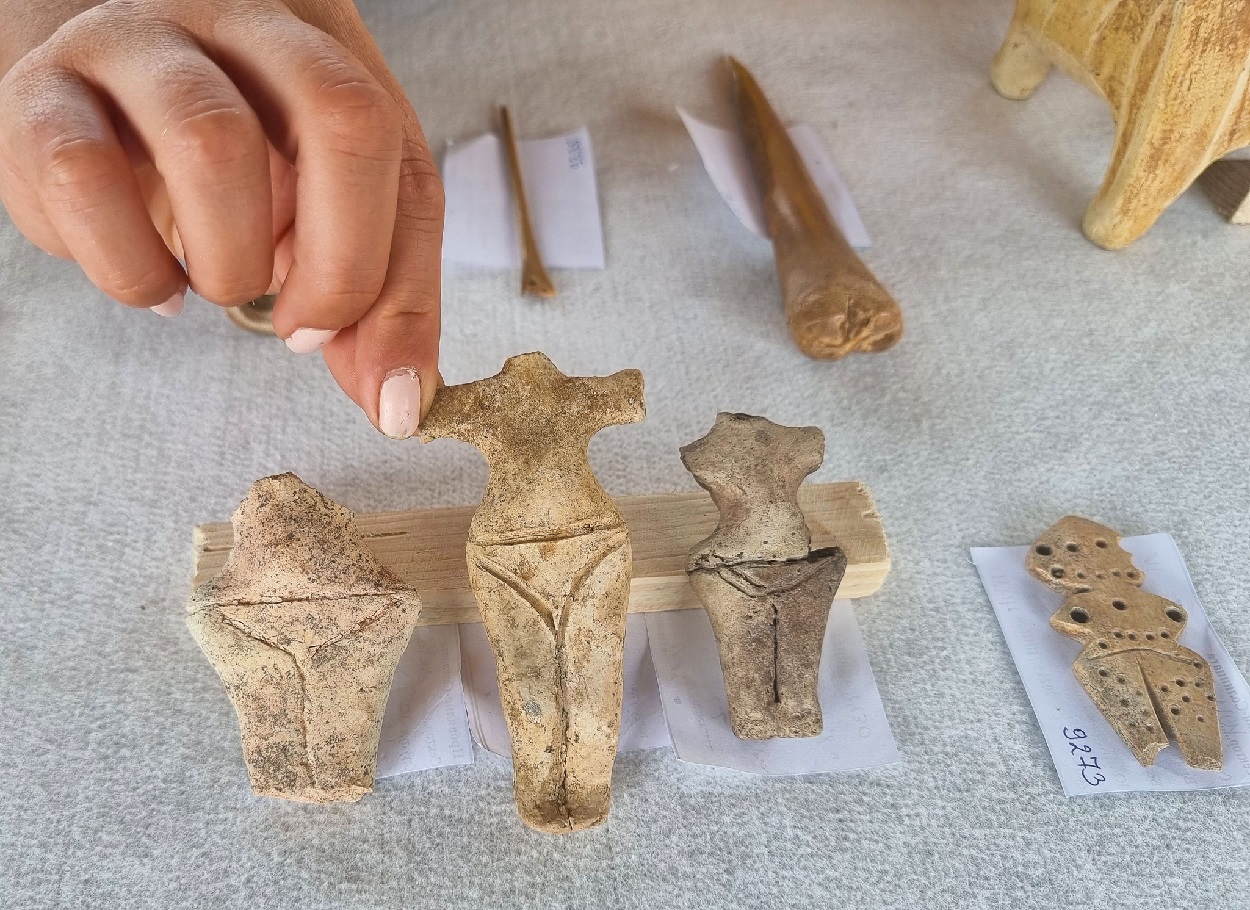Archaeologists have unearthed a ritual pit containing ceremonial objects during excavations at Solnitsa in the Varna region of Bulgaria.
Solnitsa, meaning “Saltworks” was a fortified prehistoric settlement that emerged around 4,000 to 4,200 BC during the Chalcolithic (Copper Age) period.
The prosperity of the settlement was due to a ceramic and salt production industry – salt being a valued commodity that Solnitsa exported throughout the Balkans.
The inhabitants collected brine from the salt springs near the present-day city of Provadia, which was then placed into ceramic jars positioned in a linear formation in a shallow pit.

A fire was lit in the space between the jars, which raised the temperature of the brine to boiling point and left a semi-dry layer of salt.
As the process became more refined, dedicated furnaces were developed for industrial salt production, which could regulate internal temperatures and produce up to 30 Kilograms of salt from a single loading.
The settlement suffered extensive damage from a series of major earthquakes, leading to the collapse of its defensive structures and a decline in the salt production that fuelled Solnitsata’s economy.

Recent excavations conducted adjacent to the central citadel have unearthed a pit containing ceremonial offerings. Among the objects is a zoomorphic ceramic vessel depicting the form of a bull, often seen to represent strength and fertility in Europe’s Neolithic/Chalcolithic cultures.
The pit also contained an intact preserved vessel with geometric patterns, anthropomorphic miniatures of people, and objects made from bone or ceramics.
Ongoing excavations have also recently uncovered the remains of several ancient dwellings, in addition to part of a high status Thracian house that dates from many centuries later.
Header Image Credit : iStock
Sources : BTA – Bulgarian News Agency





